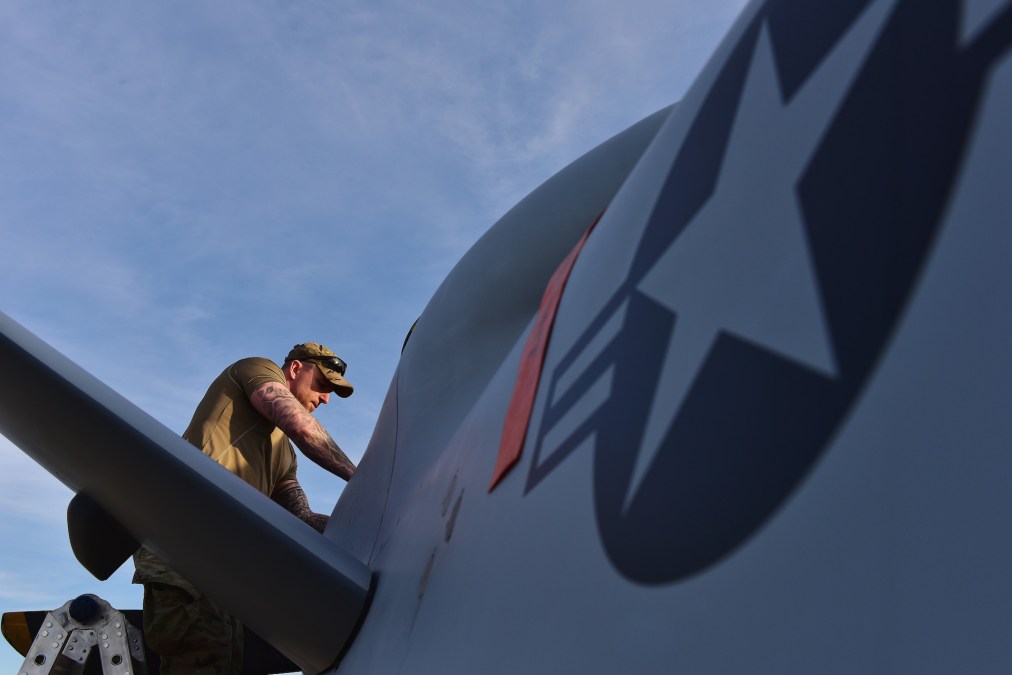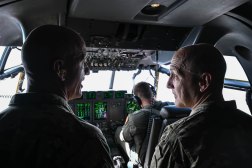Air Force officials hungry for SOUP

The Air Force Research Lab issued a solicitation this week for its Sensing Operation Using Prediction (SOUP) program, which aims to develop new and improved artificial intelligence capabilities that could boost the military’s intelligence, surveillance and reconnaissance enterprise.
The one-step call for proposals falls under AFRL’s Autonomous Decisions, Algorithms, and Modeling multiple authority announcement that was released in March.
“The objectives for the program are to develop new algorithms for tracking and sensors resource management, modifying existing algorithms, conduct experiments to measure effectiveness of combat identification (CID), integrate with other CID algorithm improvement efforts, and simulate scenarios to measure algorithm performance,” officials wrote.
In U.S. military operations, combat identification of objects on the battlefield may include friendly forces, enemy forces, non-combatants or other entities. It’s used to support engagement decisions for the employment of fires.
A more detailed statement of objectives for the SOUP program hasn’t been publicly released because it contains controlled unclassified information. Interested vendors must request it from the Air Force.
However, officials have broadly described the technical areas of focus for the Autonomous Decisions, Algorithms, and Modeling multiple authority announcement, which include multi-domain sense making, sensing autonomy, sensing and effects analysis, multi-sensing knowledge, and sensing management.
To boost “multi-sensing knowledge,” officials aim to “provide techniques for timely, high confidence behavioral and physical knowledge generation from denied and difficult targets using multiple sensors, domains, and types to include algorithm development across multiple distributed, homogeneous and heterogeneous sensors. Efforts will commonly include data association, entity detect/track/ID, information fusion, contextual reasoning, training with limited measured data, data/performance modeling, and scenario specific algorithm performance assessment,” as well as the “application of machine learning techniques to address technical challenges in contested environments,” according to the announcement.
AFRL also intends to explore ways to improve sensing management across ISR, strike, electronic warfare and cyber “mission effects chains.”
“These efforts include techniques to manage sensor data flow through collection, communication, and reasoning for processing and dissemination; to generate anticipatory responses; sensor resource planning, allocation, and scheduling; and control flexibility across multiple distributed sensing capabilities. Efforts will focus on technologies including sensing interface/architecture development and assessment, experimentation, sensing decision-making strategies, representation, sensing data and knowledge management, cross-mode sensor management and registration, distributed processing, and joint inference and control,” officials wrote.
The AFRL initiatives come as the Defense Department is looking to make its ISR enterprise more effective and efficient through the integration of new AI tools that optimize system employment and reduce cognitive and physical burdens for human operators and analysts, via autonomous capabilities and decision-making aids.
The estimated program cost for SOUP is $3 million, and the anticipated award date is July 25, according to the solicitation.






